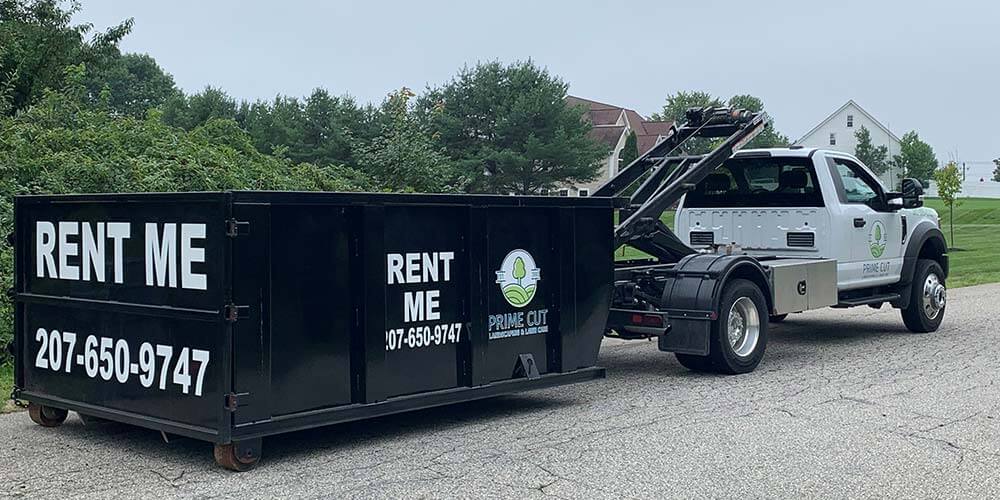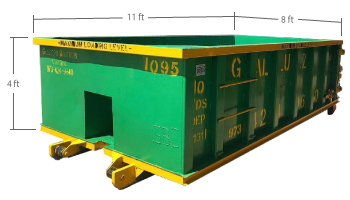When renting a dumpster, it's vital to take into consideration a number of essential elements to assure a smooth and cost-efficient waste monitoring process. Dumpster dimension and capacity, rental duration and scheduling, debris type and restrictions, weight and volume limitations, shipment and pick-up logistics, budget and hidden fees, and local regulations and permits are all crucial elements to take a look at. Appropriately assessing these aspects can help protect against unnecessary prices, enhance waste management efficiency, and avoid project hold-ups. By understanding these considerations, you'll be well-equipped to browse the dumpster rental procedure and discover the appropriate solution for your specific requirements, and there's more to explore to ensure an effective rental experience.
Dumpster Dimension and Capacity
Key Dumpster Rentals Considerations
Dumpster Size and Capacity
Three vital factors add to identifying the ideal dumpster size and capacity for a task: the type and quantity of waste, the available space for dumpster placement, and the frequency of waste disposal Recognizing these aspects is crucial to guarantee efficient waste management and stay clear of unnecessary costs.
The type and volume of waste influence the called for dumpster size, as different materials have differing thickness and weights. For example, construction debris often tends to be larger than family trash, demanding a larger dumpster
Available area for dumpster placement is another vital factor to consider. Projects with limited area may need smaller dumpsters or specialized containers, such as compactors or roll-off dumpsters.
In addition, the frequency of garbage disposal influences the perfect dumpster dimension and ability. Tasks with high waste generation prices may require more frequent draining, necessitating a bigger dumpster to fit the volume of waste.
Rental Duration and Scheduling
Once the optimal dumpster dimension and capacity are established, focus transforms to the rental period and scheduling This important facet of dumpster leasings guarantees that the dumpster is provided and gotten at the right time, permitting a smooth waste monitoring process
When choosing a rental period, think about the duration of your task, the quantity of waste produced, and the frequency of waste disposal. Normally, rental durations vary from a few days to several weeks or perhaps months. It is very important to pick a rental duration that aligns with your project's timeline to prevent unneeded extensions or early pickups.
Scheduling is just as vital, as it guarantees that the dumpster is supplied and gotten according to your timetable. Make sure to collaborate with the rental supplier to verify delivery and pickup dates, as well as any type of details requirements, such as authorizations or access restrictions
Debris Kind and Restrictions
As the rental period and organizing are wrapped up, attention shifts to the type of debris that will be taken care of and any associated restrictions.
It's important to establish what kinds of waste will certainly be created during the task, https://anotepad.com/notes/xedkrap4 as this will certainly affect the dumpster rental process As an example, hazardous materials, such as batteries, electronics, and fluorescent lights, call for special handling and disposal.

Similarly, construction debris, like concrete, asphalt, and dust, may need to be separated from other kinds of waste.
Some dumpster rental business may have specific guidelines or restrictions on specific materials, such as liquids, chemicals, or combustible compounds. Understanding these constraints beforehand assures a smooth and certified disposal process
Failing to adhere to these laws can lead to added costs, penalties, or even project delays
Weight and Quantity Limits
Beyond particles type and constraints, one more essential factor to consider in the dumpster rental process is the weight and quantity limits of the dumpster itself. Comprehending these limits is important to guarantee you don't exceed the allowed capacity, which can lead to additional fees or perhaps dumpster refusal.
Typically, dumpsters feature a specific weight limit, typically measured in heaps, and a volume limitation, measured in cubic yards It is essential to approximate the weight and volume of the waste you require to get rid of accurately.
For instance, heavy materials like concrete or soil can quickly exceed the weight limit, while lighter materials like paper or cardboard might fill the quantity limitation quicker. Make certain to ask your dumpster rental provider about their weight and quantity restrictions and obtain advice on exactly how to approximate your waste accurately.
Additionally, some providers might use flexible options, such as flexible weight restrictions or specialized dumpsters for certain materials. By understanding the weight and volume limits, you can rent out the best dumpster for your task, stay clear of unnecessary prices, and ensure a hassle-free waste disposal experience
Delivery and Pick-up Logistics
When preparing a dumpster rental, it's vital to consider not just the weight and volume limits of the dumpster however additionally the logistics of delivery and pickup This includes thinking about the accessibility of the drop-off place, guaranteeing the dumpster can be securely placed on your residential property without blocking walkways, driveways, or various other areas.
You'll also require to work with a particular delivery time that benefits you and the rental company. Furthermore, consider the size of time you'll need the dumpster and routine a pick-up date accordingly.

Be aware of any type of prospective restrictions or permits required for dumpster placement in your area. It's important to communicate clearly with the rental business regarding your details demands and any challenges you may face.
Budget and Surprise Fees
Cost openness is crucial when it concerns dumpster rental, as it directly influences your project's profits. It's essential to understand the complete cost of the rental, consisting of any type of additional costs that might arise.
Be skeptical of firms that estimate affordable price in advance, only to shock you with hidden fees later. Inquire about potential add-ons, such as fuel additional charges, distribution fees, or obese charges.
When comparing rates, see to it you're obtaining an apples-to-apples comparison Some firms may supply a lower base rate but charge extra for solutions like same-day distribution or prolonged rental periods.
Others could consist of these services in their initial quote. Clarify what's included in the cost and what's not to prevent surprise costs
Lastly, be sure to inquire about any discounts or promotions that may be offered. Some firms provide special bargains for newbie clients, long-lasting services, or bulk orders.
Local Rules and Permits
Complying with local regulations and obtaining necessary permits is an important aspect of dumpster rental, as failing to do so can result in fines, penalties, and also job delays.
It's crucial to research and understand the specific regulations in your location, as they can differ considerably from one district to one more. Some cities may call for a license to put a dumpster on a household road, while others might have particular rules regarding what products can be taken care of in a dumpster.
Additionally, some neighborhoods or homeowners' associations might have their very own policies and guidelines pertaining to dumpster rentals.
Be sure to get in touch with local authorities and your rental company to verify you have all necessary authorizations and authorizations before the dumpster is delivered.